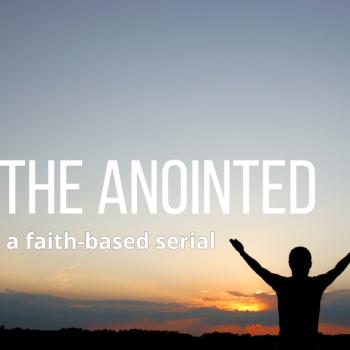
What a shocking prayer! Praying for violence… or is there more to the story?
The original title for this article was “Please God, Strike Us Evangelicals on Our Hip.” It was indeed more inclusive but simply too lengthy. Rest assured, this is not a plea for violence. Rather, it’s about drawing a parallel between Jacob and Evangelicalism. Jacob was destined to be a patriarch, but his trauma from interactions with his secular and liberal brother, Esau, left him mired in his youthful phase. It was only after God intervened, striking him on the hip, that he managed to release his trauma and embrace the role he was destined for.
This article is the third in a five-part series on evangelicalism, its call to grow into maturity, and, just like Jacob, to become the father and mother it is destined to be.
Understanding The Stagnation Of Evangelicalism
In the first two articles about the evangelicalism, I described it as a movement that, unfortunately, still clings to a teenage psyche. Due to our roots as a counter-movement to liberal theology in the States, evangelicalism has subconsciously chosen to expel forms of faith insecurity from it’s existence. This has taken us far, but ultimately, we have become stuck in our development.
Youths are strong, they bear God’s word within them, and they have overcome evil.
Someone who illustrates this beautifully is the apostle John. In his first letter, he describes three different stages of faith: children, youths, fathers. (1 John 2:13,14) I believe that, regrettably, the evangelicalism has remained stuck in the youth phase. Because of our unacknowledged fear, we, as a movement, are still insufficiently able to progress to the father phase.

John describes the youth phase with three powerful characteristics: Youths are strong, they bear God’s word within them, and they have overcome evil. These three traits certainly apply to evangelicalism. It’s a movement that should be adult by age, but has been stuck for years. How can it make the transition to the phase of being a father or mother?
Jacob: A Biblical Symbol of Evangelicalism’s Dilemma
Someone who could assist the evangelicalism in this journey of faith is the Biblical figure Jacob. In my view, Jacob is the epitome of the youth phase, even as a middle-aged man and father of thirteen children!
First, he was strong. Jacob was the one who could remove the stone from the well, while normally this required several men. In an incomprehensible way, Jacob continued to carry God’s word; the promise within him, wherever he went. Finally, Jacob constantly fought against everything he perceived as wrong; against his brother, his father, his uncle, his sons. Jacob fought a lot.
The Transition to Fatherhood: Jacob’s Spiritual Evolution
Ultimately, Jacob arrives at the river. This is his transition from the youth phase to the father phase, although he might not know it yet. First, he takes his wives and children across, then his possessions. However, Jacob does not cross yet. Something must happen before Jacob can dare the crossing. He must fight one more time.
Wrestling with God: The Pivotal Turning Point
That night, in the middle of the darkness, God comes to him and struggles with him. It’s fascinating to see that at the start, Jacob doesn’t realize it’s God. But it’s God, in the form of a man, who wrestles with him in the darkness. When the man sees that he cann’t overpower Jacob, he touches the socket of Jacob’s hip so that his hip becomes wrenched.
In the process of becoming a father, Jacob wrestles with God
When the sun rises and the man must leave, he asks for Jacob’s name and says, “Your name will no longer be Jacob, but Israel, for you have struggled with God and with humans and have overcome them.” Jacob asked, ‘Please tell me your name.’ But he replied, ‘Why do you ask my name?’ Then he blessed him there. Jacob called the place Peniel, saying, ‘It is because I saw God face to face, and yet my life was spared.’ The sun rose above him as he passed Peniel, and he was limping because of his hip.
In the youth phase, Jacob struggled against people, against what was wrong in his eyes.
In the process of becoming a father, he wrestles with God.

Learning from Spiritual Elders: Insights from Father Makarios
In his book, Report to Greco, Nikos Kazantzakis tells the following story: As a young man, he spent a summer in a monastery high in the mountains. During his visit, he had several conversations with an old monk named Father Makarios.
I struggle with God and hope to lose.
One day he asked him, “Father Makarios, do you still struggle with the devil?” To which Father Makarios replied, “No, I did that when I was younger. But I have grown old and tired. And the devil has grown old and tired with me.” “So, your life has become easier?” Nikos responded. “Oh no,” answered Father Makarios, “it has gotten much worse. Now I struggle with God!” Nikos asked him, “You struggle with God and hope to win?” “No,” answered Father Makarios, “I struggle with God and hope to lose.”
What should the evangelical movement do with such a story? What does it mean to wrestle with God and hope that you lose?
The Father Phase: Embracing Mystery and Relationship with God
It’s interesting to see what John says in his first letter about the father phase:
“I write to you, fathers, because you know Him who is from the beginning.”
Children know the Father.
Youths know the Father and have God’s word living in them.
Fathers know Him, who has been from the beginning.
What a mysterious description of God! Theologically, you can read both God the Father (who is from eternity to eternity, the eternal I Am) and Jesus Christ (the Word that was with God from the beginning and was God) in this description. Which one is it about? Is John talking about the Father or the Son here? Why does he phrase it so mysteriously?
Fathers know Him, who has been from the beginning
Of course, I don’t know the answer, but I have a suspicion. Perhaps John intentionally leaves the answer open, to somehow convey the space that will become available in the father phase (and mother phase).
Beyond Doctrine: The Expansiveness of Spiritual Maturity
In the youth phase, you think more in terms of either/or. Something is either black or white, either right or wrong. It’s the phase in which you wrestle with what’s wrong, with injustice, with evil. It’s the phase where you know the rules, you know the dogmas, you know the doctrines. And within that framework, you function, you live, you fight, you are evangelical.

But in the father phase, something of the either/or thinking shifts to both/and thinking. In this phase, it’s no longer about knowing the rules or the doctrines, but about knowing Him who is from the beginning. And that cannot be captured in rules or doctrines. That is more mysterious, more spacious.
Fathers have a relationship with God that goes beyond knowledge, beyond rules, beyond doctrines. They live in the mystery of the relationship
John doesn’t say fathers know more about God than youths or children. No, they know Him who is from the beginning. They have a relationship with God that goes beyond knowledge, beyond rules, beyond doctrines. They live in the mystery of the relationship.
And that brings space. Space in thinking, space in believing, space in living, space in being church, space in reading the Bible, space in dealing with each other, space in dealing with other opinions, other religions, other denominations. There’s something spacious, almost unbounded, about the father phase.
And that brings space. Space in believing, space in being church, space in reading the Bible, space in dealing with other opinions
Jacob, now Israel, walks away from the wrestling match with God with a limp. But also with a blessing. He has seen God face to face. And he didn’t die. He crossed the river. And met Esau. And it was good. His struggle was over. His fight was fought. He had lost. And it was good.
The Call to Wrestle with God: A Plea for Evangelicalism’s Transformation
Dear evangelical movement, shall we go and wrestle with God?
Shall we hope to lose?
So that space may arise?
Space for Him who is from the beginning.
Space for each other.
Space for the world.
Space for life.
Space for love.
This article is the third in a five-part series.
Read the other parts of this serie on the Evangelical movement:
Part 1: Evangelicalism’s High School Traits: Can Trauma Be the Key?
Part 2: Evangelicals In Crisis: Why We Struggle To Be A Mature Movement
Part 4: Only By Facing Our Trauma Can The Evangelical Movement Reach Real Fatherhood
Part 5: Why Evangelicalism Needs ‘Limping Courage’ On The Road To Maturity
Have you read some my other articles:
- Three Reasons Why Bible-Believing Christians Don’t Really Exist
- Jesus Dealing With Letters of Complaint: A Parable On Modern Church Leadership
Matt Vlaardingerbroek, a former seasoned church planter and pastor in Holland’s inner cities, brings Bible stories to life through ventriloquism and magic. He’s authored three books, and founded www.creativekidswork.com, providing over 1,500 innovative Sunday school activities worldwide.











